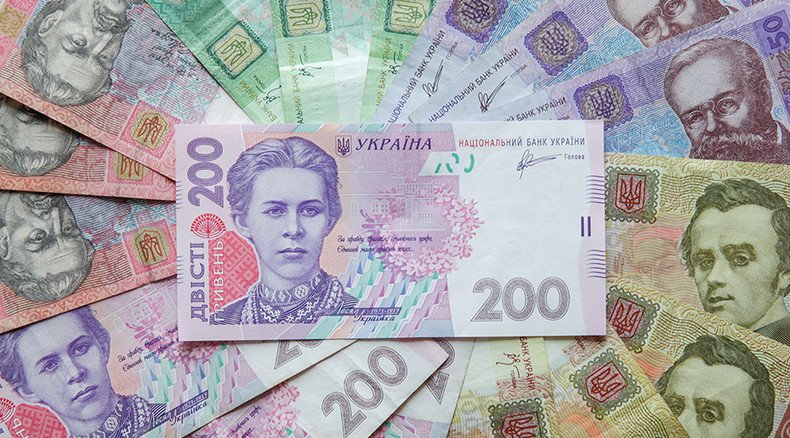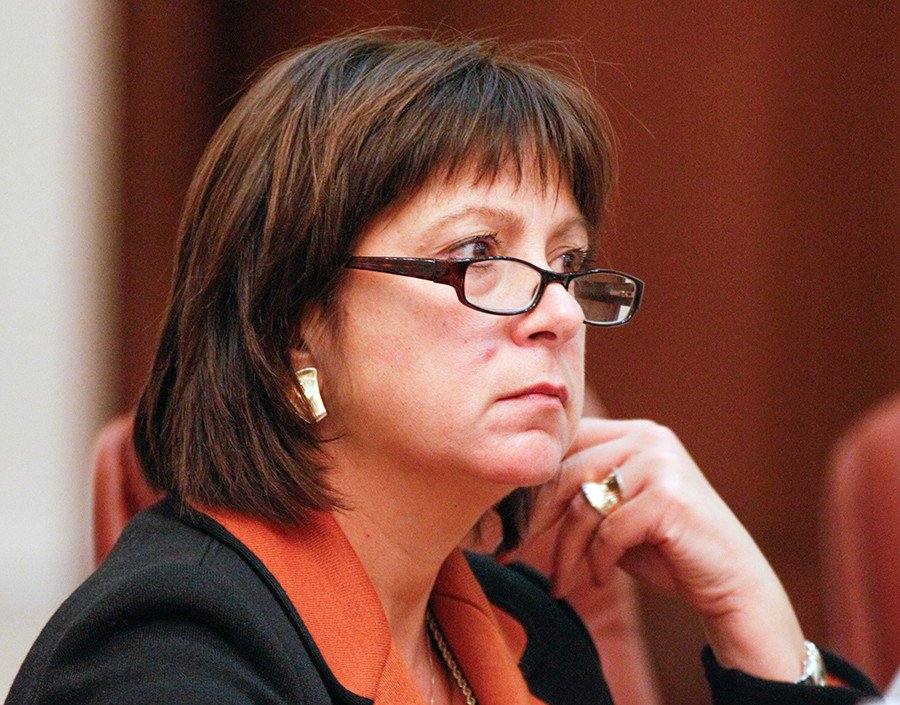'Ukrainian economy is in free fall'

Regimes may come and go, but government debt lasts forever - unless there is a default. However, Ukraine's debt does not belong to the Ukrainian people, says Jeffrey Albert Tucker from the Foundation for Economic Education.
Ukraine and its main creditors in the US have failed to reach a debt deal after two days of talks in San Francisco. The delegation from Kiev hoped to restructure around $19 billion in debt.
READ MORE: Ukraine fails to secure debt write-off at US talks
RT: With still no deal in place, how bad the current situation is for Kiev and its creditors?
Jeffrey Albert Tucker: I think it’s looking terrible. The one thing you learn from international politics is that regimes can come and go, but government debt lasts forever unless there is a default. So this government inherited this vast debt, it has done nothing to improve the situation, the talks are breaking down, nobody wants a default but if you can’t pay – you can’t pay. The Ukrainian economy is in a free fall and unless they tap some more money from the IMF I don’t see any other option. There is no tax base that can possibly cover a debt that’s so gargantuan.
RT: Last month the Ukrainian Prime Minister called Europe's handling of the Greek debt crisis a political disaster. Is Ukraine receiving better treatment from its creditors than Greece?
JAT: Probably, it is to some extent… It’s interesting that when Ukraine tried to negotiate this debt, they did it in San Francisco with American creditors, with the lead negotiator being from Illinois. It’s all a little bit ironic.
Yes, nobody wants a default, but at this point I don’t see what other solution there is. And by the way I don’t think there will be the worst thing for Ukraine, certainly for the Ukrainian citizens that wouldn’t be the worst thing.
RT: Could Ukraine become a second Greece, with severe austerity policies and years struggling to repay its debts?
JAT: This is the usual way. We see this again and again. This is how governments and the IMF usually push countries to go, to basically pillage their citizens on behalf of their international creditors. This is fundamentally unfair. Austerity, it has never worked except for maybe a temporary respite, but what it actually does is increases political instability because austerity really means that the burdens of paying the debt fall upon the citizens.
This debt does not belong to the Ukrainian people. This is a deal worked out between governments and their creditors. I do think it’s up to them to resolve it. It’s frustrating for everybody in the world because the more money the IMF pumps into this failing economy the more people around the world - and especially Americans - are pillaged and it leads to a lot of resentment. It doesn’t actually fix the problem.

Can Europe continue bailing out Ukraine?
Professor of political economy Dr. Jack Rasmus suggests that negotiations between Ukraine and its creditors are going to continue over the next several weeks, but they will become more intense as the stakes get higher for both sides.
RT: Ukraine said this week’s debt talks were the last chance. With still no deal in place, what’s next for Kiev?
Dr. Jack Rasmus: I think negotiations are going to continue. The real deadline probably is sometime in mid-September, maybe a little bit before, when Ukraine has to come up with a $500 million payment. So there is still some time and they will continue negotiating. They have been moving closer in their negotiations. Ukraine has probably taken the 40 percent haircut off the table. The Franklin Templeton group, which holds about 10 billion of the 19 billion they’re negotiating with, has signaled that they will take some kind of a haircut, but they haven’t said how much, probably less than 10 percent. So we are going to see continued negotiations here over the next several weeks getting more intense. The closer they get, of course, to that deadline, the higher the stakes are for both sides.
RT: Aid to Ukraine so far has been very limited. Why haven’t we seen more of an effort from Western powers to rescue the country’s economy?
JR: It’s because the IMF will not provide its $17 billion second bailout package and the others won’t follow it, the other sources, unless Ukraine comes to some agreement with its private bondholders. That’s what’s holding it all up. And, of course, the bondholders know that they’re in the driver’s seat that way, and they’re stalling, and the closer you get, the more difficult it is, because the price of the bonds is going up. It looks like there is a settlement; more speculators are jumping in, driving up the price, which makes the haircut less for Ukraine. So the situation is changing, it’s fluid and the closer you get… the parties will get closer. I suspect the haircut will be maybe somewhere between 10 and 20 percent, which is really only talking about a 2 to 3 billion haircut for the bond holders. A lot bigger haircut is going to be implemented for the citizens in Ukraine with pension cuts and higher gas prices and so forth.
RT: If Ukraine does default what are the likely consequences for Europe?
JR: The consequences for Ukraine is its currency collapses further and that’s a problem – and that means that more money has to be added for the bailout. Of course what you’ve got in Europe now is an economy that is very fragile; it’s still dealing with the Greece debt situation. You’ve got currency wars erupting all over the world and it’s a big question mark now how much Europe can keep plowing into bailing out Ukraine if it gets worse.
The statements, views and opinions expressed in this column are solely those of the author and do not necessarily represent those of RT.
The statements, views and opinions expressed in this column are solely those of the author and do not necessarily represent those of RT.












